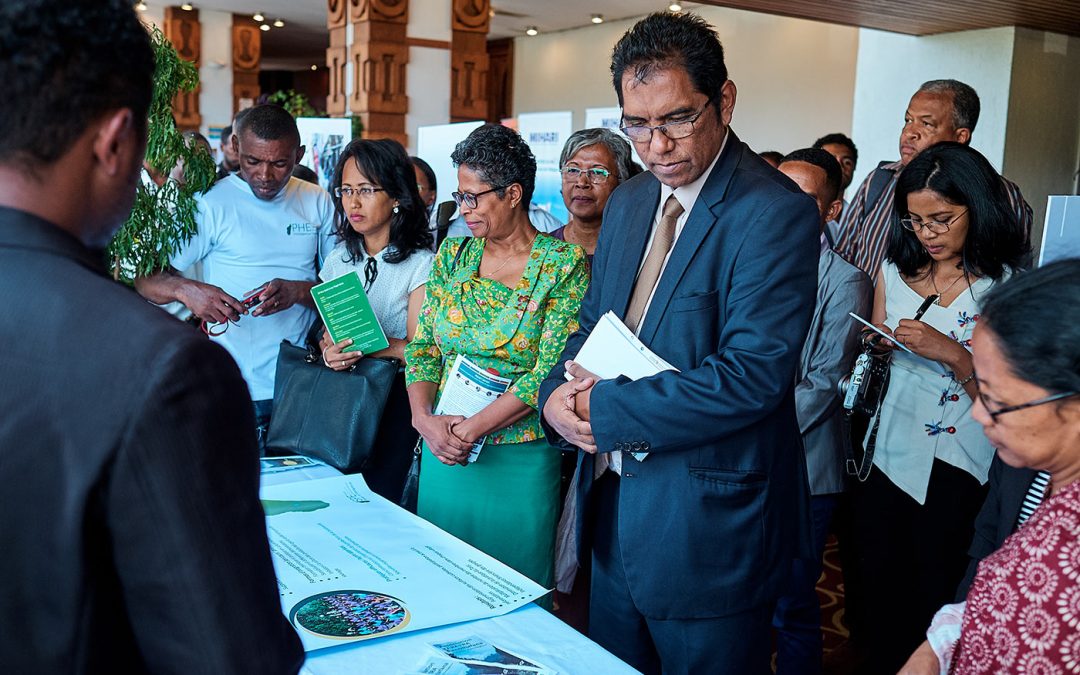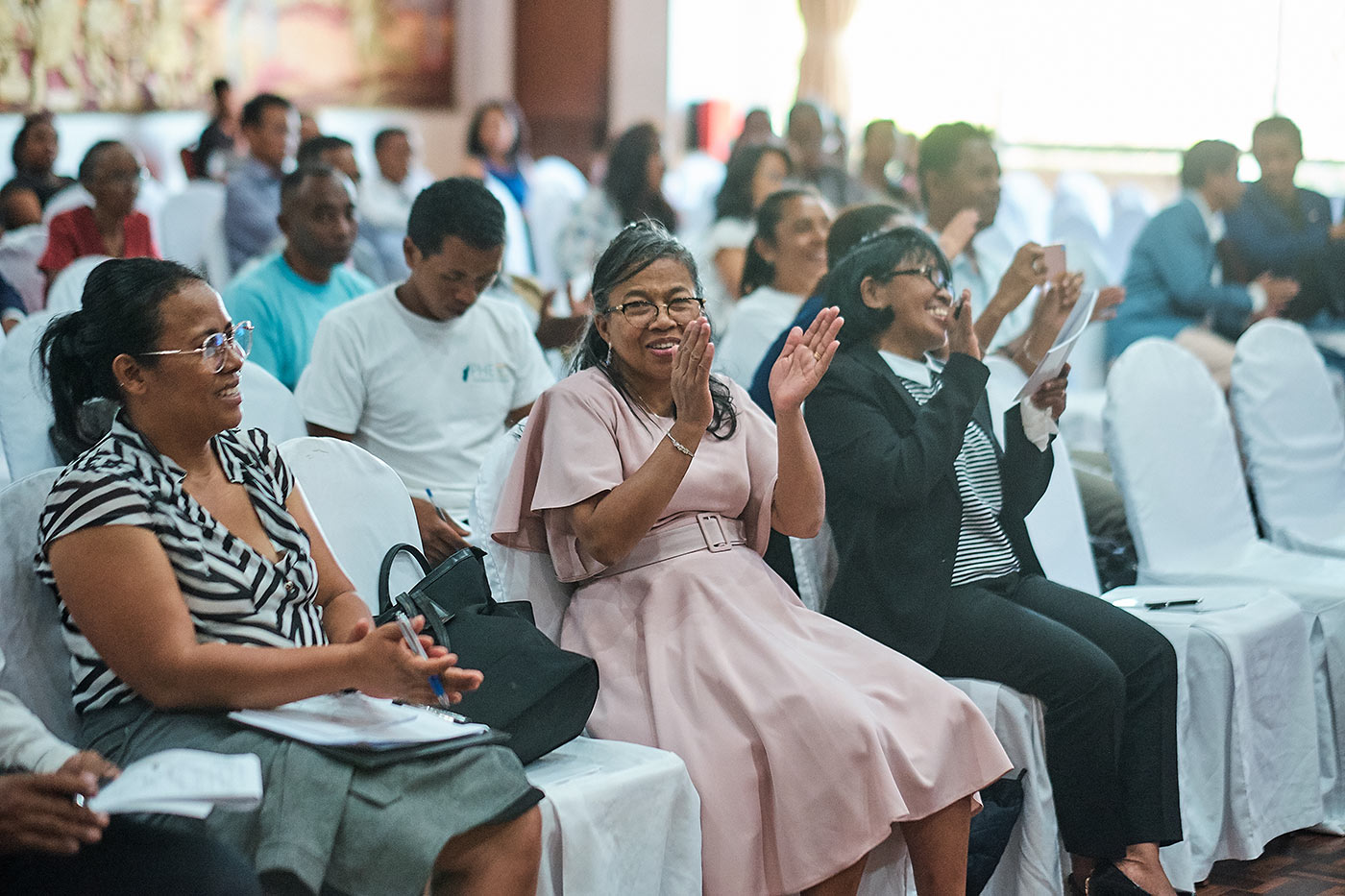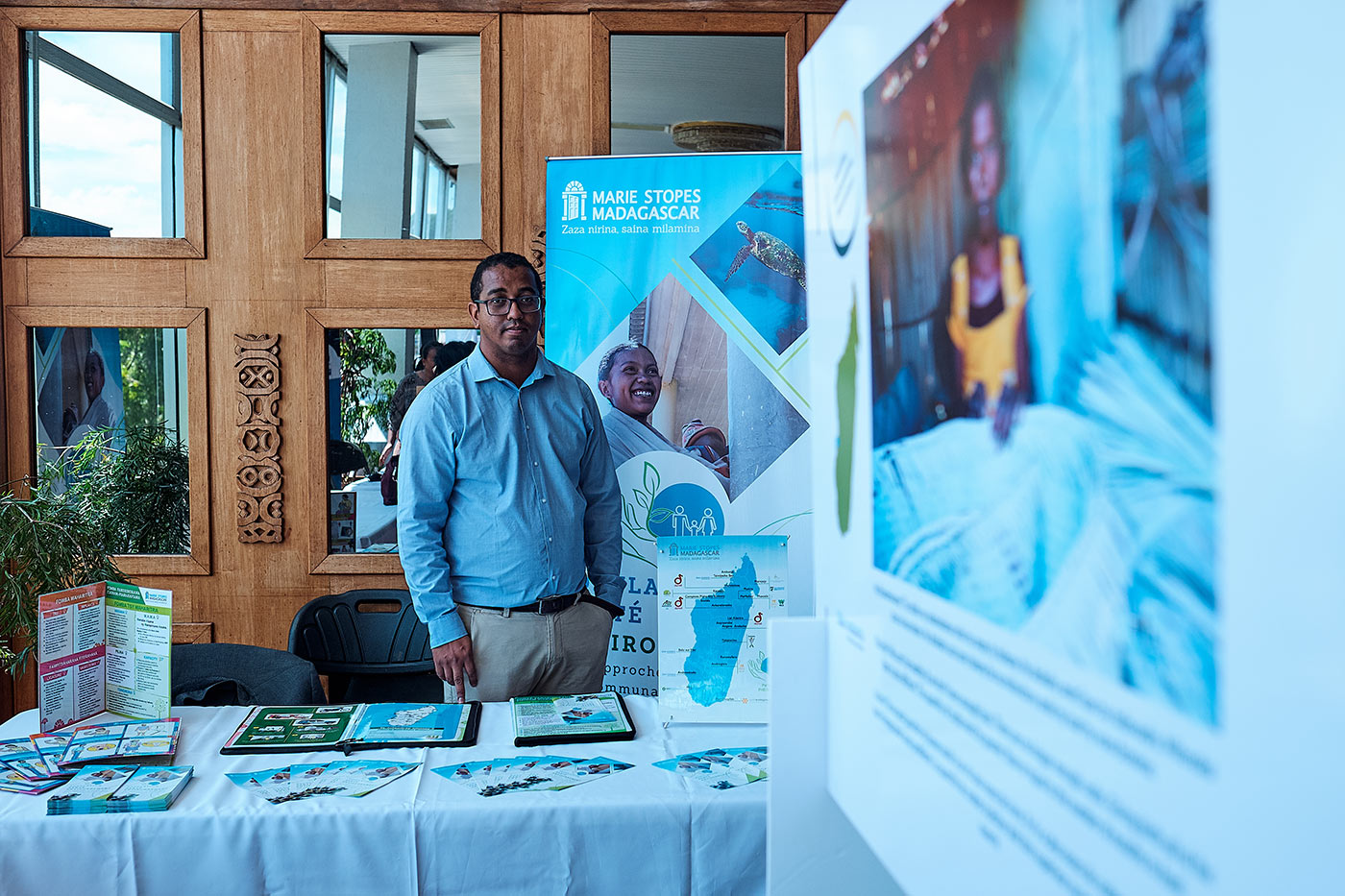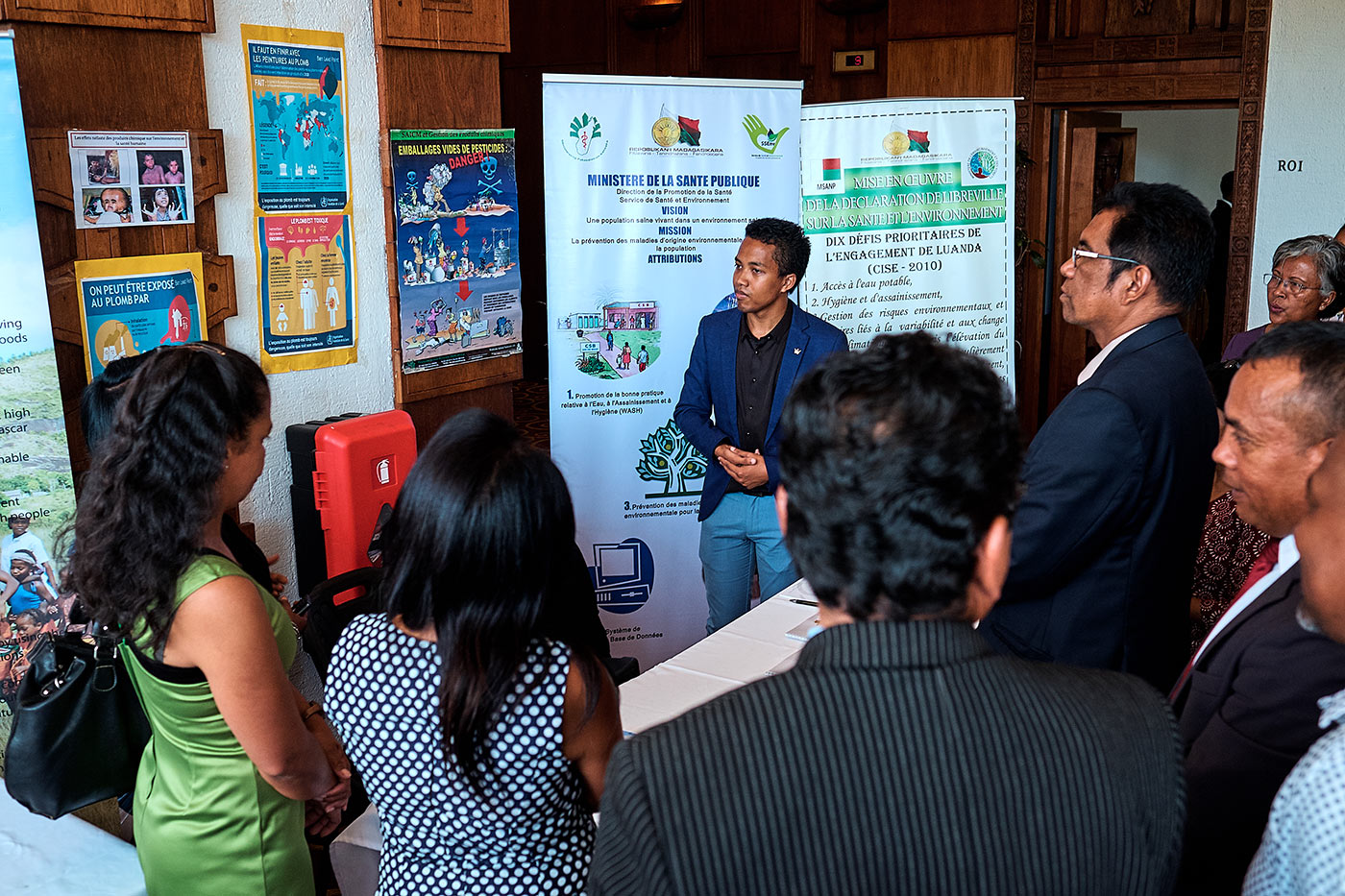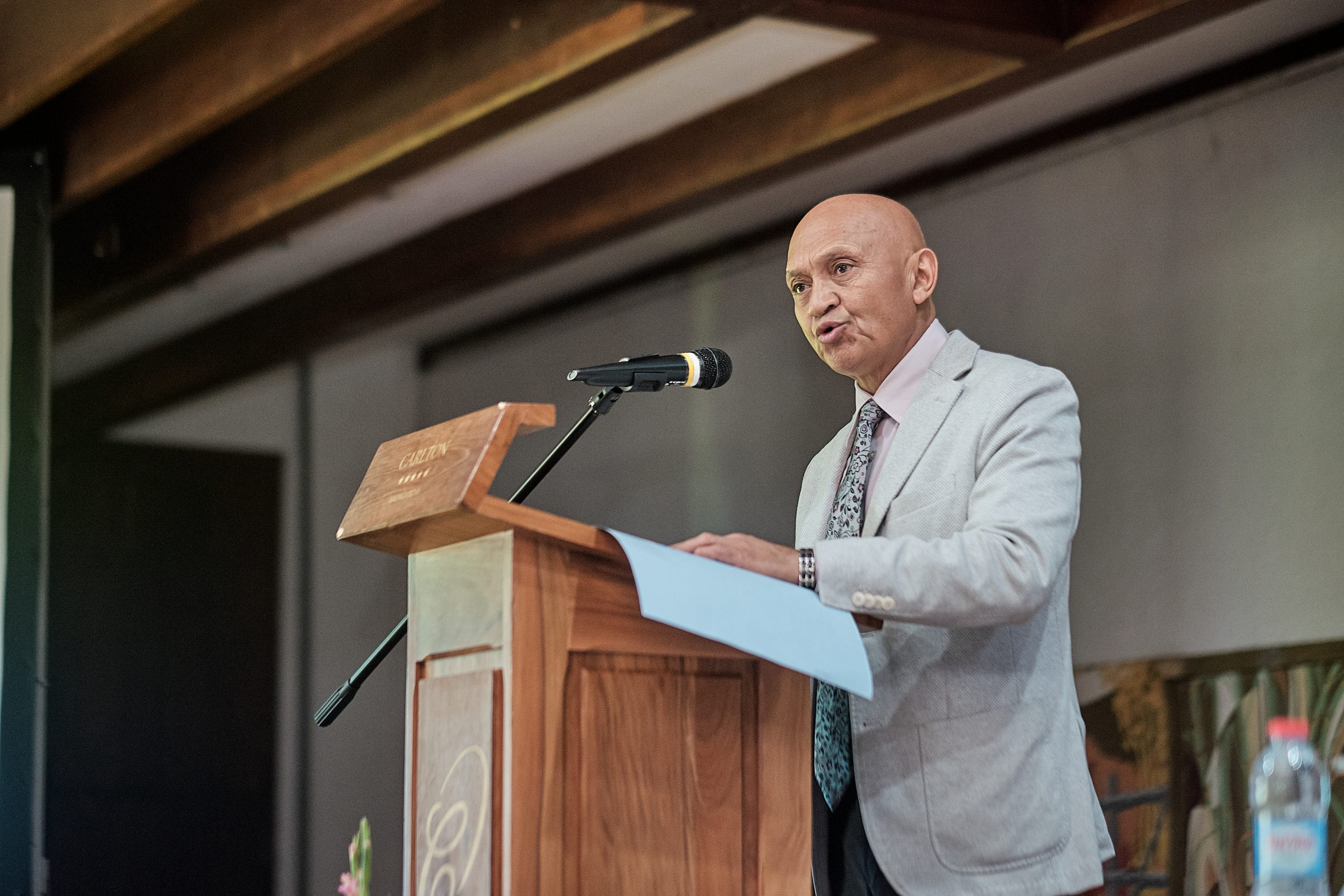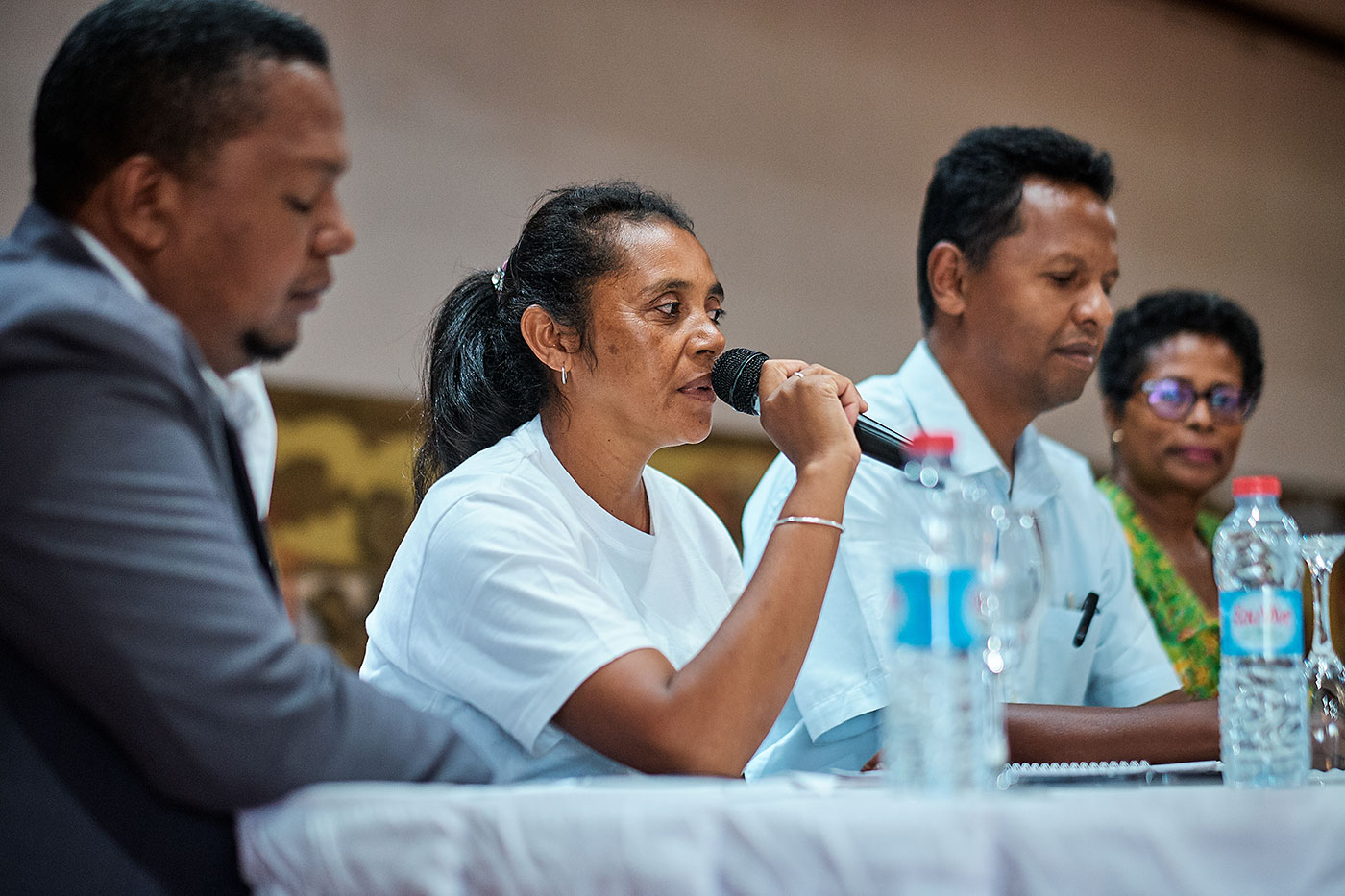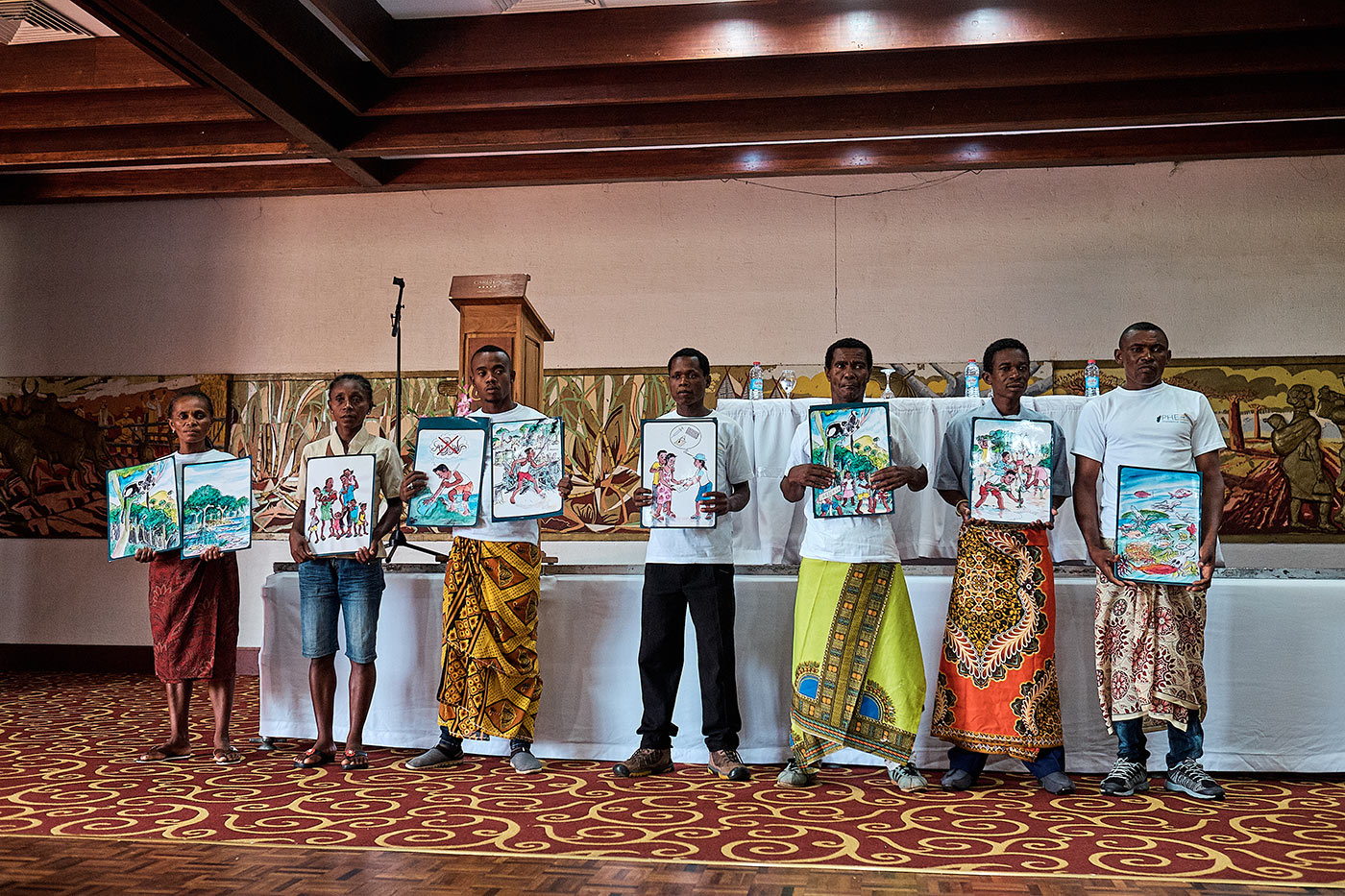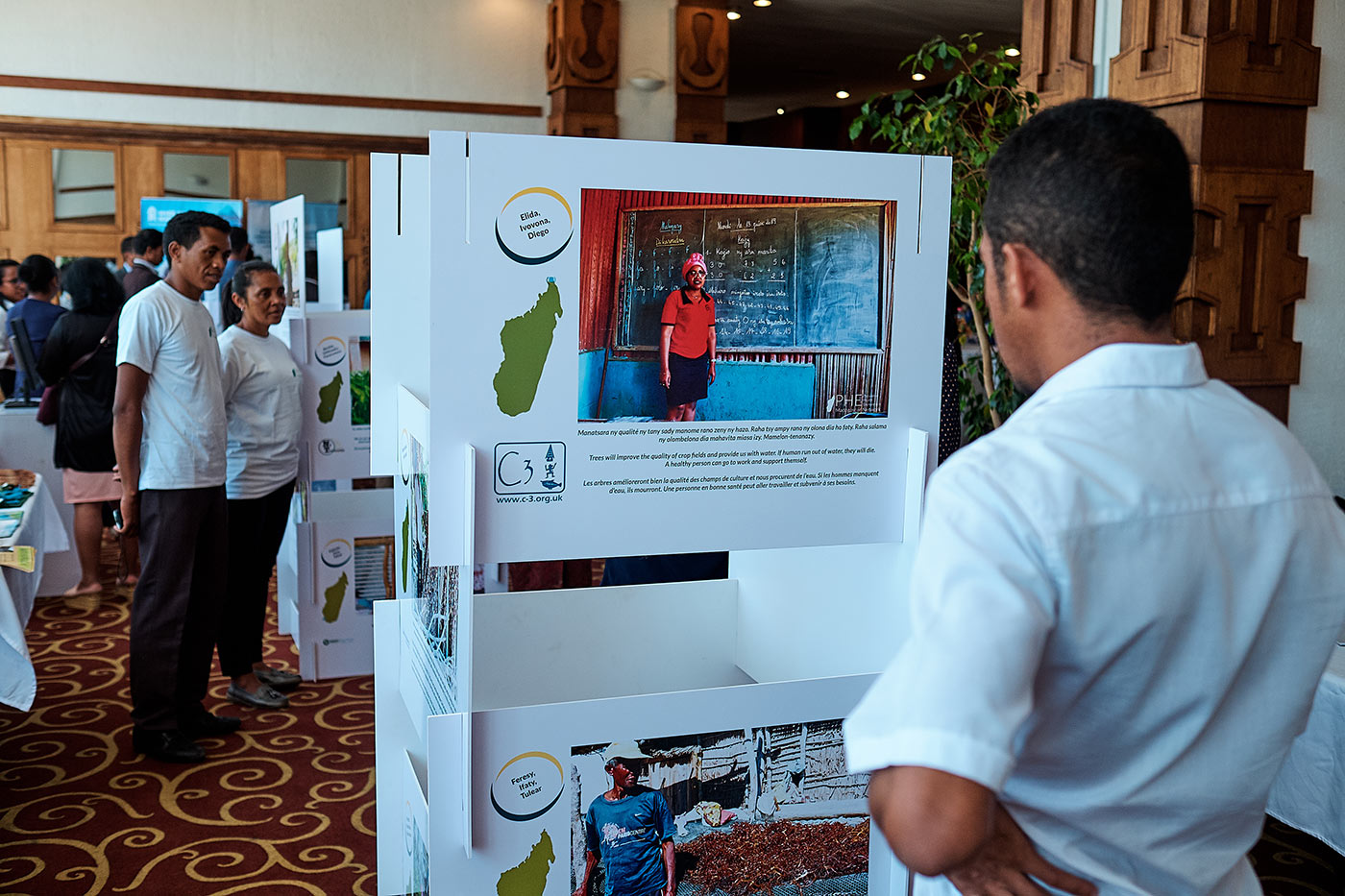More than 100 people gathered at the Hotel Carlton Anosy in Antananarivo, Madagascar, last month to review five years of achievements since the Madagascar PHE Network was created. This high-level showcase event brought together representatives from 40 health and environmental organisations plus local associations, communities, ministries, funders, embassies and the media. Key results, implementation experiences and lessons learned were shared through presentations, exhibition stands, posters, discussion panels and community testimonies.
The multi-stakeholder event, which was organised by the Madagascar PHE Network in close collaboration with Madagascar’s inter-ministerial Health-Environment Working Group (Groupe de Travail en Santé et Environnement / GTSE), was officially opened with speeches from the Minister of Environment and the Secretary General of the Ministry of Public Health. Both delegates highlighted the value of cross-sector PHE partnerships for advancing biodiversity conservation, sustainable development and public health in the country’s most isolated and under-served regions. They also signalled their ministries’ intention to create a national PHE legal / policy framework as a next step forward for Madagascar’s burgeoning PHE movement.
With members of the Madagascar PHE Network now reaching over 350,000 people across more than 20 sites, there were plenty of experiences and learning to share. Discussion panelists spoke about the PHE approach as being more than just a partnership: it’s a mindset, a way of working, an exchange of services and harmonisation of activities that doesn’t require additional funding but can take each organisation further in reaching their health / conservation goals and engaging communities. More than 20 organisations had posters at the event, displaying their partnership models and results.
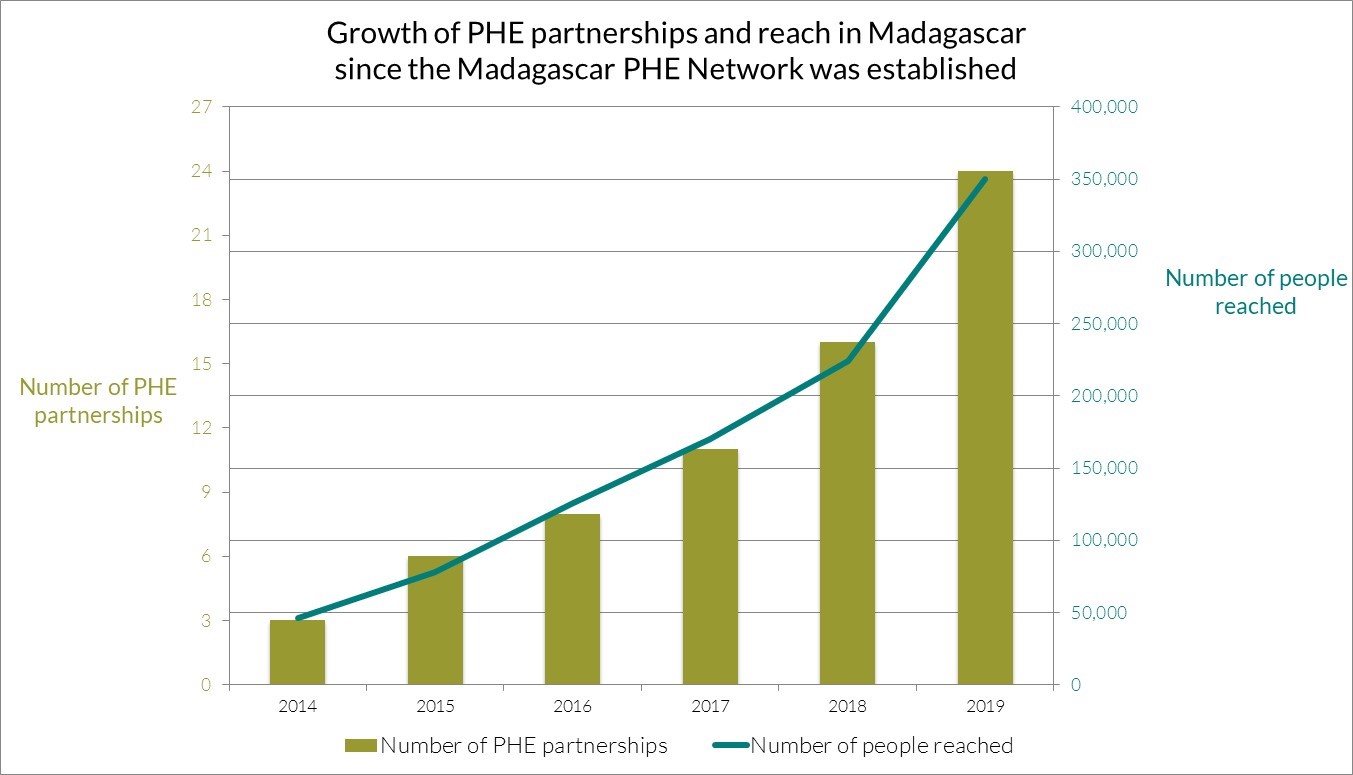
Community members were also centre-stage, with an exhibition of photo testimonies from seven regions of Madagascar and a demonstration by community members of interconnected health-environment challenges using enlarged versions of the network’s PHE story cards. The exhibition featured portraits of a variety of community members (fishers, farmers, mothers, fathers, village leaders, community health workers, local management committee members, youth) accompanied by quotes describing their hopes for their community and environment or the most significant changes they had experienced as a result of their participation in PHE initiatives.
The showcase event was an excellent opportunity for each actor, from ministry representatives to non-governmental organisation staff and local community members, to learn more about PHE implementation, share their motivations and challenges, and look to the future. GTSE members spoke of their commitment to advancing the development of a national PHE legal / policy framework within their ministries, and the coordinator of the Madagascar PHE Network presented an ambitious 2025 vision: PHE as the default model for conservation programming in Madagascar, reaching more than 750,000 people with robust national learning systems in place.
- Find out more about the PHE network’s first five years of growth in this interactive site / brochure
- Download the PHE showcase report here
Comments from event participants
“This was the first time that we were invited to attend a showcase event and really participate in it. We took part in the discussions with no prejudice. We felt people paid attention to us and listened.”
Françoise, Ny Tanintsika
Community
“Now I understand better the aim and components of the PHE approach. Sometimes we work on it without understanding completely what we have done but we do it for the community. I can say that we are on the right path to reach objectives in the protection of the environment and community health.”
Zefrin, Blue Ventures
Implementer, regional staff
“The use of the Malagasy language during the event allowed us to be closer, to debate openly about the situation of the natural environment with the communities who live there. This was an opportunity for us to see which NGO works where and with what expertise, and to identify those that can work with us to develop our PHE activities.”
Onja, Madagascar National Park
Implementer, national staff
“The strengthening of partnerships between health and environment stakeholders as well as technical and financial partners makes it possible to achieve positive and tangible results. This is why we must develop and implement a policy on this integrated approach as soon as possible.”
Minister of the Environment and Sustainable Development
Government

